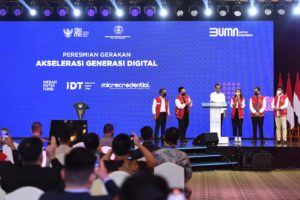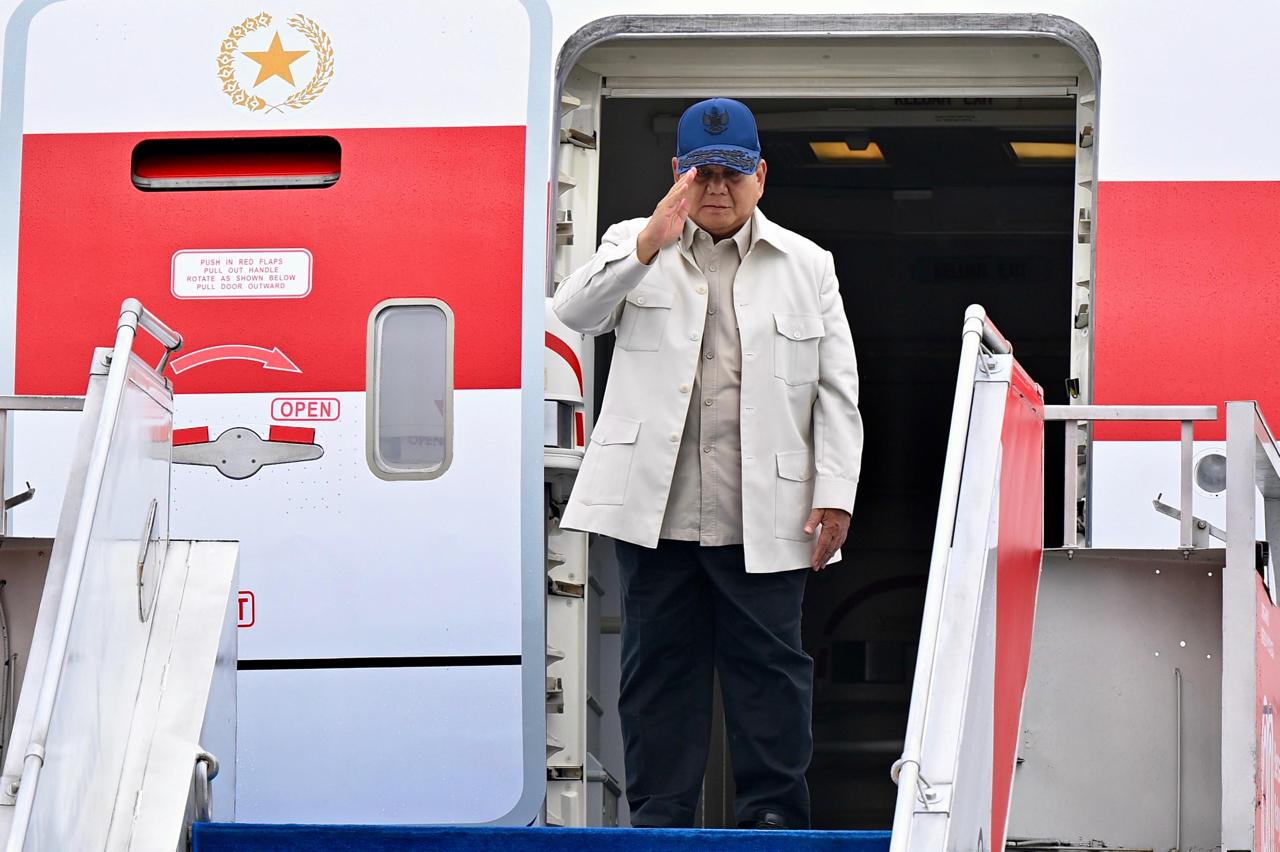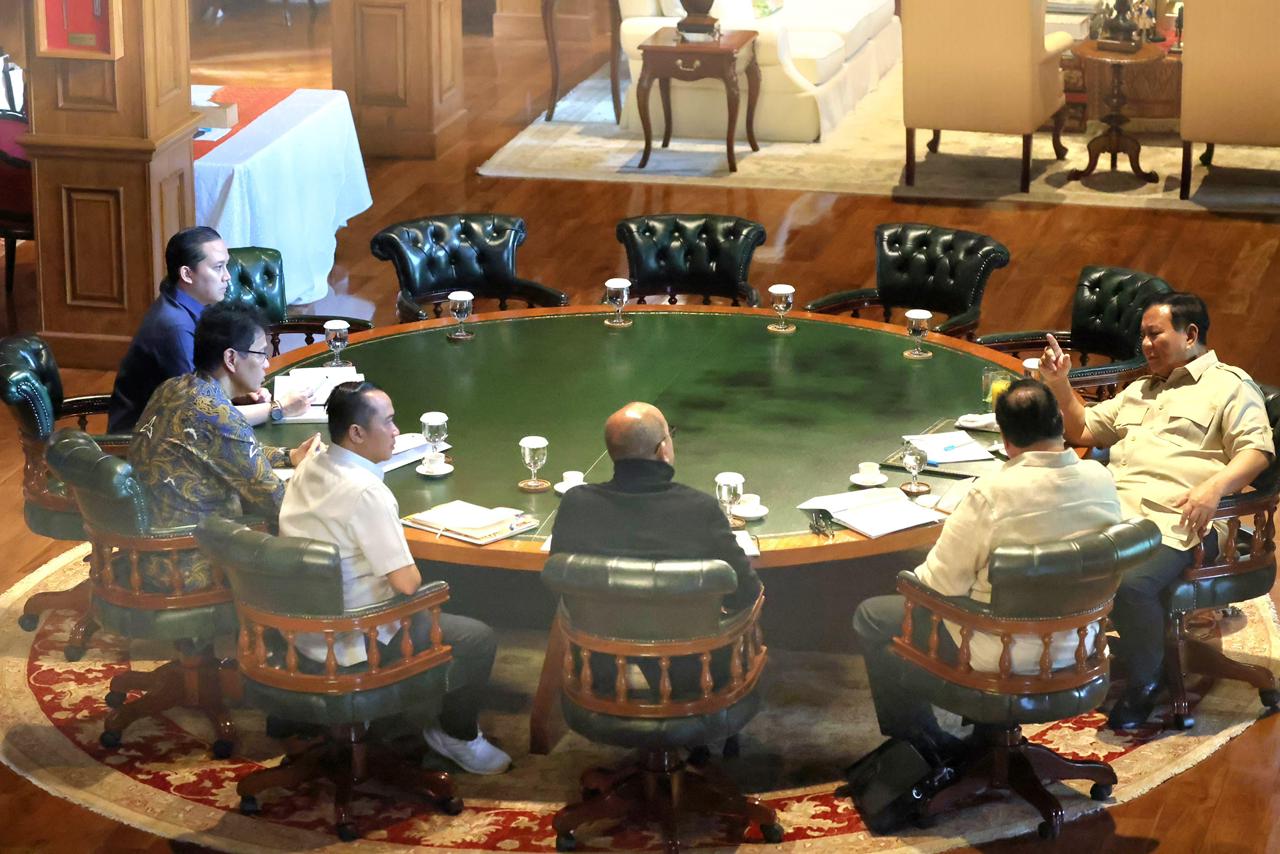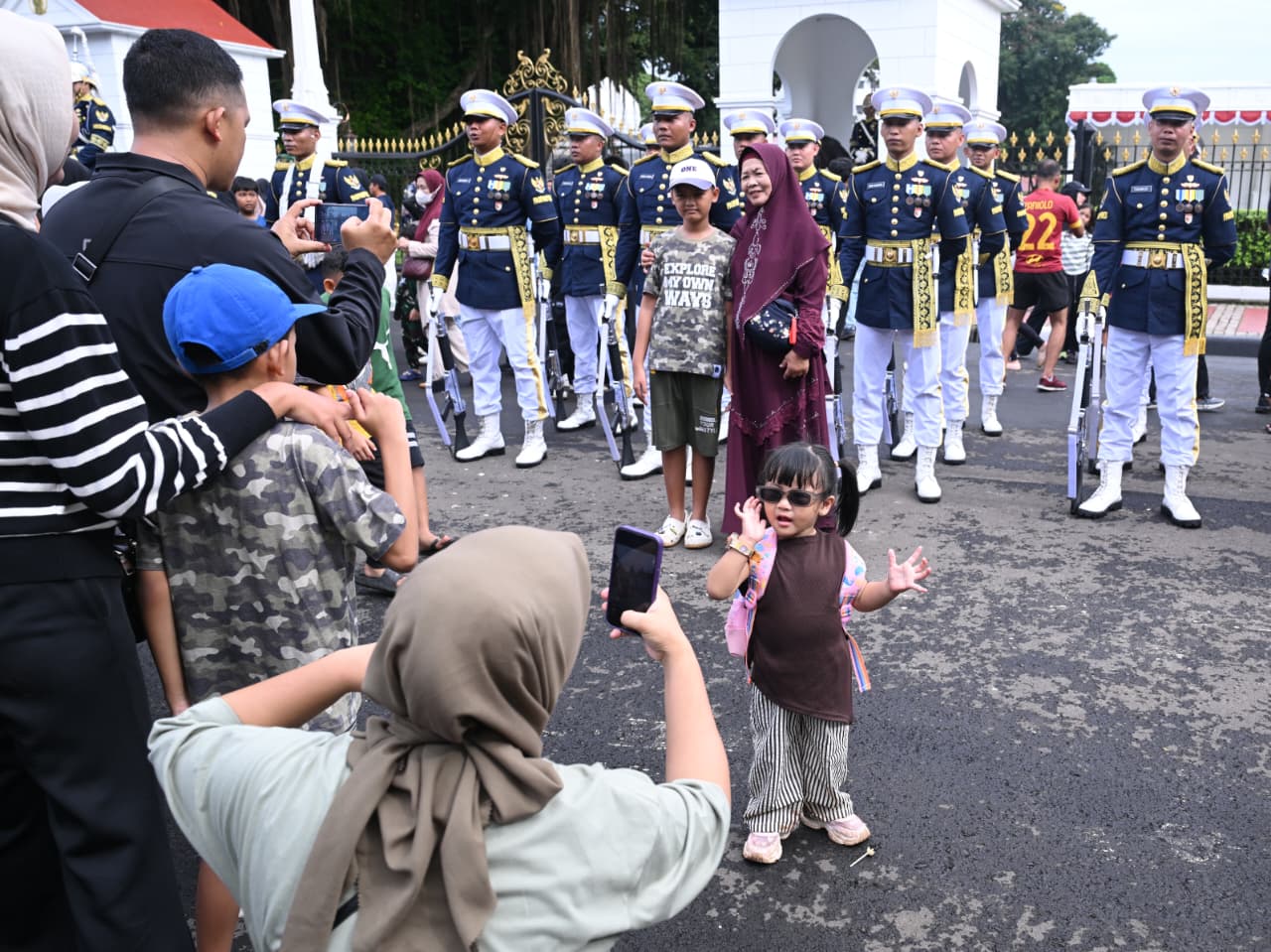Gov’t to Increase Target of Digital Talent Training Participants in 2022

President Jokowi accompanied by Minister of State Secretary Pratikno, Minister of State-Owned Enterprises Erick Thohir, Minister of Education, Culture, Research, and Technology Nadiem Makarim, Minister of Communications and Informatics Johnny G. Plate, and news start-up Narasi founder Najwa Shihab at the inauguration of Digital Generation Acceleration Movement at JCC in Jakarta, Wednesday (12/15). (Photo by: BPMI of Presidential Secretariat/Lukas)
Ministry of Communications and Informatics will increase the number of target participants of digital talent training in 2022.
In line with the increased target, the Ministry will also expand cooperation with partners for the training.
“The President has said that infrastructure development must also be used optimally by the people, or in his words, [used for] downstreaming. In order to realize downstreaming, there are many things that we need to do, including to prepare the availability of adequate human resources or digital talents,” Minister of Communications and Informatics Johnny G. Plate said, quoted from the website of Ministry of Communications and Informatics, Wednesday (12/29).
Ministry of Communications and Informatics has carried out digital training programs in three levels, namely National Movement of Digital Literacy (GNLD) to prepare participants with basic skills, Digital Talent Scholarship (DTS) program for mid-level training and Digital Leadership Academy (DLA)program for advanced-level training.
These programs are a part of the Government’s measures to prepare human resources in order to speed up national digital transformation.
“We have ICT (Information and Communication Technology) infrastructure, but our human resources are not ready, so Ministry of Communications and Informatics took initiative to conduct programs related to enhancing the qualifications and qualities of Indonesia’s digital human resources, starting from the lowest level, namely basic skills,” Johnny said.
According to Johnny, digital talent capacity improvement carried out by Ministry of Communications and Informatics is in line with the ongoing digital infrastructure development, thus, Indonesian human resources can utilize the constructed infrastructure.
Johnny added that human resources’ digital capacity development is not only Ministry of Communications and Informatics’ duty but also a duty of other ministries and Government institutions as well as ecosystems in the country.
Furthermore, Johnny pointed out that the participants of GNLD or basic-level digital skills training in 2021 were almost 98.87 percent or 12,307,498 and in 2022, the target participants are 12.5 million people.
“Next year, we will continue it with the same number, but the budget is not yet available in the State Budget, so we will find funding or new sources of finance to fulfill the needs of approximately 12.5 million [participants] next year. I hope that by the end of 2024, 50 million Indonesians have received basic-level digital training,” he said.
According to Johnny, out of 270 million Indonesians, those who understand digitalization are relatively few. Therefore, through GNLD, Ministry of Communications and Informatics and its ecosystem provide trainings to introduce them to the basics of digital literacy.
“Without involving the people to take part in the digital space, the ICT infrastructure we constructed will not be utilized optimally,” he said.
The GNLD program that won a prize from the United Nations’ International Telecommunication Union in 2020 provides trainings for people in 34 provinces and 514 regencies/cities with four basic curricula, namely digital skills, digital ethics, digital security, and digital culture.
“We took a more proactive initiative to carry out this movement in hope that ministries and Government institutions as well as regional governments will continue it and make more programs because we indeed have big needs. We cannot succeed if we do not prepare, for example, MSME players and onboarding ultra-micro [enterprises] with basic-level digital skills,” Johnny said.
Meanwhile, the Ministry targets at least 600,000 participants for DTS program to achieve the target of nine million digital talents available in the next 15 years.
“Ministry of Communications and Informatics has taken initiatives for the past few years. In 2021, it is quite aggressive by preparing 100,000 trainings for Indonesian millennials who have finished high school and undergraduate study. Next year, I hope this program can train approximately 200,000 participants and it is also in cooperation with more than 100 higher education institutions in Indonesia and global companies,” he said.
The DTS program in 2021 was participated by 131,204 people who have attended various training programs related to cloud computing, artificial intelligence, internet of things, virtual reality, augmented reality, and coding.
“This program is carried out in cooperation with many global technology companies from America, Europe, and Asia. Cisco, Apple, Microsoft, Huawei, Samsung, ZTE, and others take part in this program to ensure availability of digital workforce or digital skills in middle level,” he said.
In the meantime, the DLA program is conducted to prepare and enforce digital policies as well as to train public sector employees, covering those in Central Government and regional governments, and start-up founders in the private sector.
In 2021, Ministry of Communications and Informatics partnered with four prestigious higher education institutions, namely Tsinghua University in China, National University of Singapore in Singapore, Oxford University in England, UK, and Harvard Kennedy School in the United States of America.
“In 2021, there were 306 participants. In 2022, the DLA program will be developed with a target of 400 participants consisting of public institution leaders and C-levels. We hope we can cooperate with eight top world universities,” Johnny remarked. (PR of Ministry of Communications and Informatics/UN) (DH/LW)








